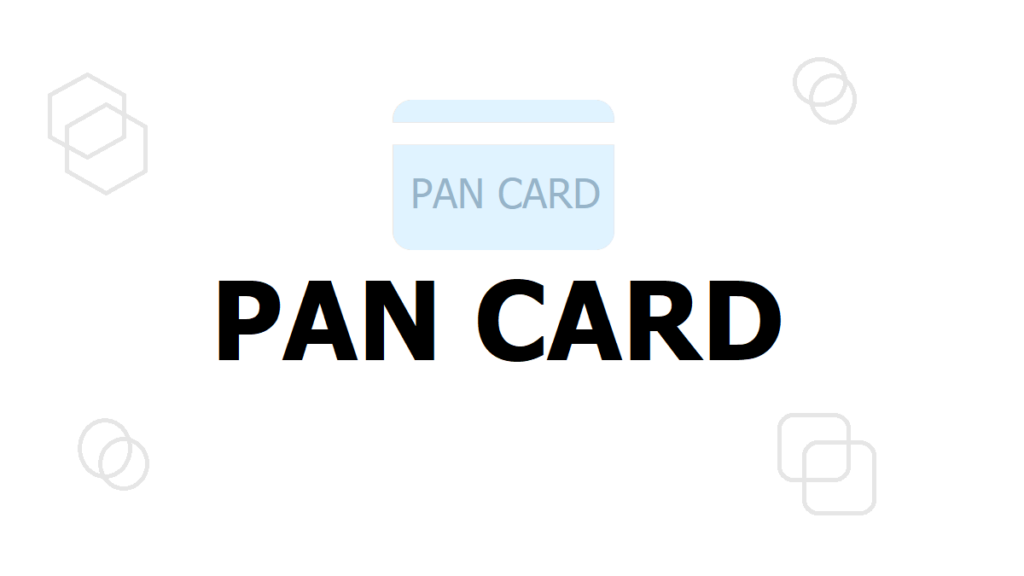Know why PAN card is mandatory for cash deposits in bank account. Learn about the rules, benefits, and how this impacts your banking experience.
In India, the government has made it mandatory to use a PAN card for various financial cash transactions at banks.
Introduced by the Income Tax Department, the PAN card is a mandatory document for a variety of financial activities, including cash deposits in bank accounts.
When is a PAN Card Required for Cash Deposits?
As of May 26, 2022, you don’t necessarily need a PAN card for every cash deposit into your bank account. But,
a) Large Deposits: If you’re depositing Rs. 50,000 or more in a single day, you’ll need to provide your PAN card details to the bank.
This helps the government track large cash movements and prevent money laundering.
b) Yearly Total: Even if individual deposits are less than Rs. 50,000, if the total cash you deposit in your account(s) throughout the financial year (April 1st to March 31st) exceeds Rs. 20 lakh, you’ll need to provide your PAN card details.
When you don’t need a PAN Card?
a) Smaller Deposits: For cash deposits under Rs. 50,000 in a single day, you generally won’t need a PAN card.
b) Savings Accounts: Accounts opened under the Pradhan Mantri Jan Dhan Yojana (PMJDY) scheme are exempt from mandatory PAN card requirements.

PAN Card requirment for cash deposits
| Cash Limit | Requirement |
|---|---|
| Depositing less than Rs. 20 lakh | No PAN card required |
| Depositing Rs. 20 lakh or more | PAN card (or Aadhaar) is mandatory |
| IT Department website | https://www.incometax.gov.in/ |
Why PAN Card is Mandatory for Cash Deposits?
- These PAN card rules are in place to help the government monitor large cash transactions/
- Reduce the risk of tax evasion and illegal activities.
- By tracking cash flow, they can identify suspicious patterns and ensure everyone is paying their fair share of taxes.
Benefits of Using a PAN Card During Deposits
Even for deposits less than Rs. 20 lakh, using your PAN card offers some advantages:
Faster Transactions: Using a PAN card helps in simplifying and streamlining banking operations by ensuring that all transactions are well-documented.
Easier Tax Filing: Banks maintain transaction records linked to your PAN, which can be helpful for tax purposes or future reference.
Improved Financial Security: The mandatory requirement enhances financial security by ensuring that all transactions are traceable.
Conclusion
Finally, you can ensure your cash deposits are made smoothly and comply with Indian regulations.
Please remember that always keep your PAN card safe and secure. Don’t share your PAN details with anyone you don’t trust.
FAQs
What is a PAN Card?
The PAN card is a unique 10-character alphanumeric identifier issued to all taxpaying entities in India. It is essential for tracking financial transactions and preventing tax evasion.
What if I Don’t Have a PAN Card?
You can submit Form 60 if you don’t have a PAN card, but it is advisable to obtain a PAN card to avoid complications.
Is PAN card mandatory for all cash deposits?
No, a PAN card is mandatory only for deposits exceeding Rs. 50,000 or aggregated transactions that exceed this limit in a single day.
How do I link my PAN card to my bank account?
Visit your bank branch with your PAN card and account details. Fill out the required form, and the bank will link your PAN to your account. Many banks also offer online linkage services through their websites or mobile apps.
Are there any penalties for not providing a PAN card for large deposits?
Yes, failure to provide a PAN card for deposits exceeding Rs 50,000 can lead to penalties, including fines and scrutiny from tax authorities.
Which rule introduced by CBDT for cash deposits?
In 2022, the Central Board of Direct Taxes (CBDT) introduced a new rule requiring individuals to quote either their PAN or Aadhaar for deposits or withdrawals exceeding Rs 20 lakh in a financial year. This applies to high-value transactions in banks or post offices, as well as to opening current accounts or cash credit accounts.